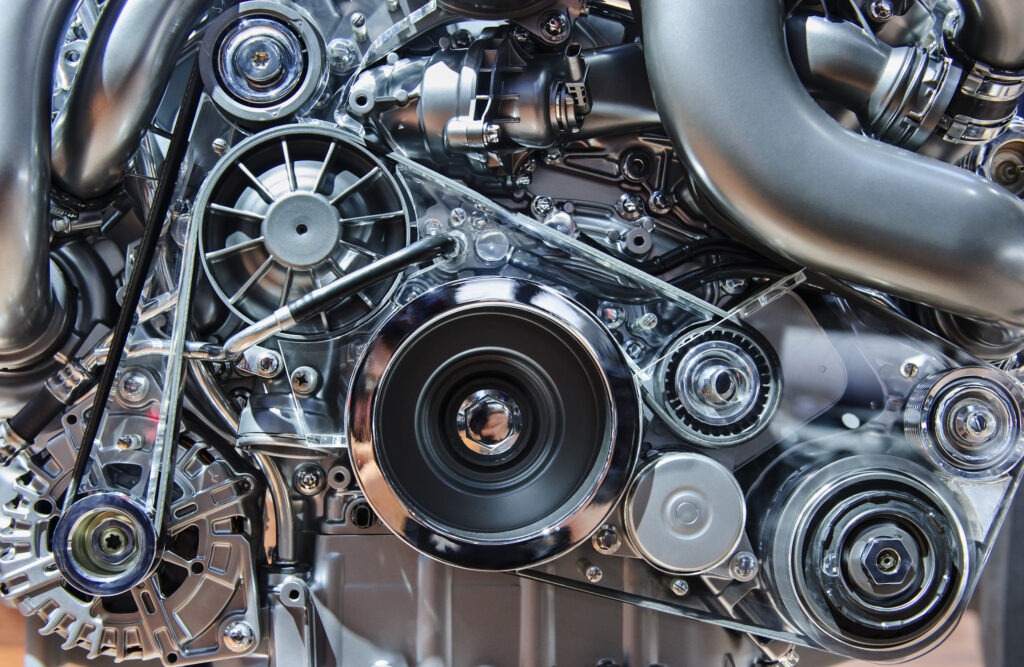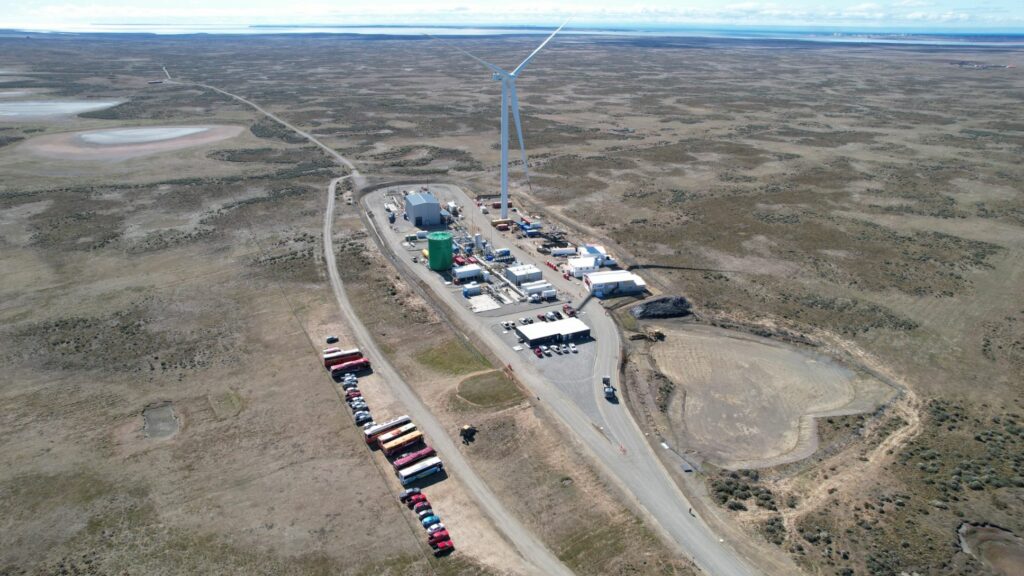Is Europe’s proposed ban on new petrol and diesel cars under threat?
20 March 2023

It seemed a done deal, but Europe’s plans to ban the sale of new internal-combustion engine (ICE) cars by 2035 have been put on hold. News broke in early March that the EU has delayed a landmark vote on the phase-out of petrol and diesel cars, largely due to intervention from Germany’s coalition government.
The Free Democrats (FDP) are eager supporters of carbon-neutral synthetic fuels, or e-fuels, and want new ICE vehicles running on these to be exempt from the proposed ban. FDP politician and German transport minister, Volker Wissing, argued that synthetic fuels should remain a possibility beyond the 2035 deadline.
‘We expect a proposal from the EU Commission on how synthetic fuels can be used in passenger cars after 2035,’ Wissing said after his party was accused of blocking the vote.
‘It is not only the Federal Republic of Germany calling for technology openness. More and more European countries have doubts about the current regulatory proposal. Responsible governance also means answering the questions correctly down to the last detail,’ he added.
Growing support amid criticism
Italy, Bulgaria, and Poland have also voiced opposition to the ban. Now Germany has questioned the proposal so shortly before it was expected to be formally approved, there are concerns the dissent could lead to a serious roadblock.
Austrian chancellor Karl Nehammer welcomed FDP’s stance, saying he would also oppose banning the internal-combustion engine. Czechia’s transport minister Martin Kupka said he would not back the Europe-wide ban if synthetic fuels cannot be used in the future.
At the same time, the European Automobile Manufacturers’ Association (ACEA) is calling for technology openness. ACEA president and Renault CEO Luca de Meo believes that ‘the enemy is fossil-based energy, not a particular technology.’ He added that mass electrification is part of the solution but not the silver bullet.
The delay of the vote was announced by Sweden, which currently holds the presidency of the EU Council. A new date for the vote has not been made public and critics, ranging from environmental groups to MEPs, are condemning the German government.
Transport & Environment (T&E) said the FDP is threatening Europe’s plans to become climate-neutral in 2050.
‘By blocking the most progressive climate legislation in the world, the Liberals (FDP) risk not only the breakup of the coalition but Germany’s credibility on the world stage,’ said Julia Poliscanova, senior director for vehicles and emobility at T&E.
French economy minister, Bruno Le Maire, found clear words. He said his country was prepared to ‘fight’ for the proposed ban because a delay would be an environmental and economic mistake.
German MEP Rasmus Andresen of the Green Party described the move by the FDP as ‘embarrassing’ and damaging to Germany’s reputation in the EU. He stated on Twitter that ‘whoever agrees first cannot veto afterwards.’ Germany’s Green Party environment minister Steffi Lemke also voiced criticism, demanding that the country should act reliably at the European level and stand by its commitments.
Meanwhile, the German federal association of e-mobility (BEM) commented that Germany risks being a bad example, fearing this behaviour could weaken the country’s electric-vehicle (EV) market. The organisation went as far as labelling the transport minister’s demand a scandal that is not in the interest of climate protection.
Synthetic fuels
The current debate centres on synthetic fuels, the production of which is based on hydrogen and CO2. Supporters hope these can keep new ICE vehicles running beyond the proposed 2035 ban as a replacement for conventional fuels. But there are shortcomings as e-fuels still emit pollutants, are less efficient than battery-electric vehicles (BEVs), and are expected to be expensive to produce.
The FDP has come under sharp criticism since reigniting the debate on keeping ICE vehicles alive well into the next decade and beyond. It is also causing confusion in the European automotive industry as most car manufacturers are already prioritising EVs.
For years, European politicians have communicated to automotive manufacturers that electrification is a primary method to reach vital climate targets. Volkswagen (VW) Group recently increased its BEV sales target in Europe, aiming for at least 80% of European sales to come from all-electric models by 2030. A U-turn would put environmental objectives into question.
Volvo, which plans to be an all-electric carmaker by 2030, has called on all EU governments to take climate targets seriously.
‘Now is not the time for backtracking and blocking of science-based climate targets for our industry,’ Volvo CEO Jim Rowan wrote in a LinkedIn post. ‘Now is not the time to put domestic political interests ahead of the health and welfare of our planet and EU citizens, and indeed of future generations. Now is the time for strong, decisive, and progressive policy and leadership.’
Open to technology
The FDP told Autovista24 that it wants mobility and climate protection to remain open to technology.
‘It is not the internal-combustion engine that harms the climate, it is the fossil fuels. A ban on individual drive technologies is not only unnecessary, but counterproductive in terms of technological openness,’ the party said.
‘The EU Commission had promised to develop a proposal on how passenger cars with combustion engines can continue to be used beyond 2035, provided they are powered by e-fuels. Nothing has happened here so far. Therefore, we are of the opinion that as long as the EU Commission does not move on this issue, Germany cannot agree.’
Germany’s powerful automotive association, the VDA, is also promoting the use of e-fuels, urging EU politicians to make a relevant proposal. ‘Synthetic fuels are absolutely necessary. In view of the 1.5 billion vehicles worldwide, e-fuels are a central building block on the road to climate neutrality,’ said VDA president Hildegard Müller in a recent interview.
Porsche remains a supporter of synthetic fuels, last year opening a commercial pilot plant in Chile. Fellow German carmaker BMW reiterated that ‘technology openness’ is needed to meet climate targets. Alongside EVs, the premium brand is exploring the potential of hydrogen fuel-cell vehicles.

Missing the mark?
Considering that the automotive industry could struggle to reach emissions reductions compatible with the 2015 Paris Climate Agreement, any delays to electrification might further threaten vital climate targets.
Although overall greenhouse gas emissions in Germany fell slightly in 2022, according to preliminary data from the Federal Environment Agency, the transport sector failed to meet its climate targets. In this sector, around 148 million tonnes of CO2 equivalents were emitted last year, up 0.7% from 2021. Subsequently, Germany’s transport minister came under fire, with some accusing him of not taking climate protection seriously.
Overall, concerns are growing that the proposed new ICE-vehicle ban could be watered down and undermine Europe’s climate targets. At this stage, it is unclear whether demands to include e-fuels within European legislation will succeed. However, the spat might not be as short-lived as some would hope as Germany is building a European alliance of supporters that includes both the automotive industry and fellow EU members.



